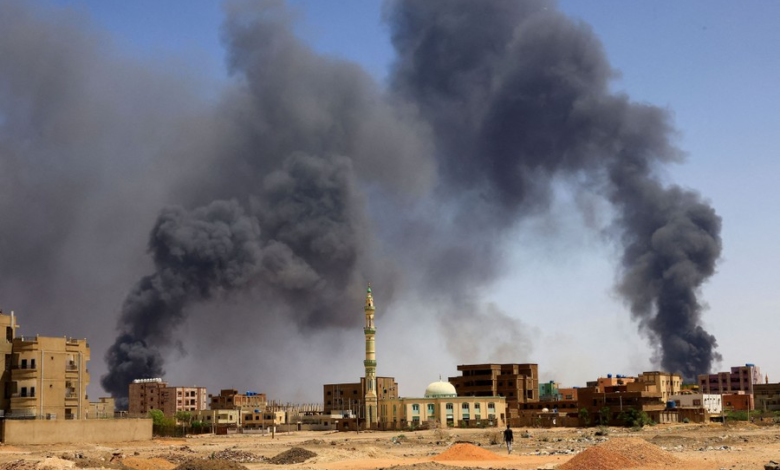Doctors At Risk As Sudan’s Humanitarian Crisis Worsens
A doctor working in Sudan’s capital Khartoum has given HumAngle a glimpse of how hard life during the conflict has become. She has been living in the hospital where she works because moving around has become too risky.

Doctors trying to help Sudanese civilians wounded as military factions continue to fight in the capital Khartoum are living under increasingly intolerable conditions, HumAngle has learned.
Fighting between the Sudanese Armed Forces and the paramilitary Rapid Support Forces has killed at least 1,800 and forced over a million from their homes, with the capital worst hit.
HumAngle contacted a doctor working and living in North Khartoum.
The woman we are just naming as Safa said life in the Bahri district of the city where she lives and works has become really dangerous.
“I live in one of the areas most affected by the war and men of Rapid Support Forces are mostly present here,” Safa said.
There have been reports that the paramilitary faction has been looting homes raping women and killing civilians in the area around the hospital.
Fear
Reports of rape have been increasing daily. There are also pregnant women, some with complications, who are in need of medical aid.
Many medical facilities have shut down for the fear of their safety while some have rejected patients because they don’t have enough bedspace.
“I myself stayed in the hospital for 14 days because it’s dangerous to roam around,” Safa told HumAngle through a messaging app.
Where she is in the city has been without electricity, water supply and steady internet connection for days. Bombing and shelling and the chance of running into armed militants, mean she has not been able to move around the city.
She said both the Sudanese Armed Forces and Rapid Support Forces have attacked medical workers.
The RSF are the paramilitary faction led by General Hamdan Dagalo, known as Hemedti. They are fighting the Sudanese Armed forces led by the chief of the ruling Military Council General Abdel Fattah al-Burhan
Displaced
The United Nations has reported that nearly 1.4 million people have been newly displaced since 15 April, including 1 million people displaced internally and 330,000 who have crossed into neighbouring Ethiopia, Chad and Eritrea.
Several attempts at ceasefires have failed. The political crisis between Sudanese Armed Forces (SAF) and the paramilitary Rapid Support Forces (RSF) has continued to ravage the northeast African country since it began in mid-April.
According to the Armed Conflict Location and Event Data Project, more than 1,800 people have died since the fighting started.
After fighting broke out in many places, aid organisations described a catastrophic humanitarian scenario unfolding in Sudan’s Darfur, an area already battered by years of bloodshed.
Sudanese army chief Abdel Fattah al-Burhan has demanded the dismissal of the UN envoy to Sudan, Volker Perthes, accusing him of having sparked the conflict.
People who depend on daily income have been put in a terrible situation.
If the war continues there are fears that the war may plunge the country into famine because this is a season for farming, so if the crisis continues, the crisis will continue, which as a result will put the country into hunger.
As the fighting continues, most can’t afford to leave as hunger has been ravaging the country. Millions of people are in dire need.
“People are leaving Khartoum because there’s no water, there’s no food, there’s no electricity. And, there is a very high level of insecurity. The future is very bleak for the people, bleak for Sudan and it’s bleak for the region,” said Michael Dunford, East Africa regional director at World Food Programme.
More than six weeks into the fighting, the UN calculated that 25 million people, or more than half the population, needed aid and protection.
Support Our Journalism
There are millions of ordinary people affected by conflict in Africa whose stories are missing in the mainstream media. HumAngle is determined to tell those challenging and under-reported stories, hoping that the people impacted by these conflicts will find the safety and security they deserve.
To ensure that we continue to provide public service coverage, we have a small favour to ask you. We want you to be part of our journalistic endeavour by contributing a token to us.
Your donation will further promote a robust, free, and independent media.
Donate HereStay Closer To The Stories That Matter




